Memory Care in Minnesota
While it ranks sixth nationally, Alzheimer’s disease places fourth among the leading causes of death in Minnesota. Roughly 99,000 Minnesotans aged 65 and older have been diagnosed with this disease, and the projected 21.2% increase in the coming five years means there will be approximately 120,000 diagnosed seniors by 2025. Based on these figures, the number of North Star State geriatricians needs to triple by 2050. Aside from 21% of hospital readmissions and hospice admissions dealing with dementia patients, a substantial 32.6% of the state’s emergency room cases are associated with the disease.
In addition to Minnesota’s nationally recognized efforts in building dementia-friendly communities, there are memory care facilities across the state to help seniors and their loved ones through their journey. These facilities offer secured homelike accommodations, brain-healthy meals, 24-hour supervision and individualized programs. Some of their amenities may include life skill stations and other therapeutic spaces for routine and special activities. The average cost of memory care in the Land of 10,000 Lakes is $4,750 per month, which is more affordable than the U.S. average of $5,064.
This informative guide equips families with better knowledge about memory care in Minnesota. It talks about the state’s SeniorScore, average memory care costs, financial assistance programs, related government regulations and free resources.
SeniorAdvice's Guide to Memory Care in Minnesota
On par with the national average, Minnesota’s SeniorScore of 72 indicates that the state is generally a favorable place to retire. A SeniorScore is an unbiased rating calculated using over 100 data points from government and private organizations, providing a quantitative measure that shows how well a location satisfies the needs of older adults. This data-driven senior livability index is further detailed into four categories: Health and Safety, General Quality of Life, Recreation and Leisure and Finances.
Minnesota’s Health and Safety score is the highest at 67. The state is home to a large number of senior care providers and Medicare-enrolled health care facilities, including three nationally ranked hospitals such as Mayo Clinic. Older Minnesotans can expect to live longer than the national average with the state’s life expectancy of approximately 81 years. General Quality of Life in Minnesota earned a score of 64 due to the state’s climate, characterized by freezing winters which may be uncomfortable for outdoor-loving seniors.
Recreation and Leisure in the Land of 10,000 Lakes also receives a score of 64. Age-friendly Minnesota has plenty of state parks with accessible trails to keep seniors close to nature. The vibrant Twin Cities is teeming with entertainment, sports and cultural attractions, which may be included in the planned excursion activities offered by memory care facilities. Finances received the lowest score of 61 for the high tax rates and the taxation of all forms of retirement income in Minnesota. However, the state’s lower-than-average cost of living, above-average income levels and relatively affordable assisted living/memory care costs may help compensate for this drawback.
Top Memory Care Communities in Minnesota
The Villa at St. Louis Park is situated around the Cedar-Isles-Dean neighborhood of Minneapolis, Minnesota. It is a 105 bed senior care community. The facility is in a predominantly middle income area, with a median per-family income of ...
The Villa at Osseo is a senior care community located at 501 2nd Street SE in Osseo, Minnesota. The facility is in a generally affluent area, with an average per-family income of $79,587. With roughly 34,000 people residing ...
Located at 2000 Oakdale Ave in St Paul, Minnesota, Southview Acres Health Care Center is a 241 unit skilled nursing facility. The surrounding area has a dense population, with around 29,000 people residing in the 55118 zip code. ...
Located at 1013 Hart Blvd in Monticello, Minnesota, Centracare Health - Monticello is an 89 room skilled nursing facility. With about 19,000 residents in the zip code of 55362, the neighboring area has a medium-density population. It is ...
Rose of Sharon Manor is a 63 room senior care facility situated near by the Como neighborhood of Roseville, Minnesota. The community is in a largely middle class area, with an average per-household income of $57,267. It has ...
Shirley Chapman Sholom Home East is a 108 unit senior housing community. It is situated within the West 7th area of St Paul, Minnesota. The facility is in a predominantly middle income area, with a median household income ...
Langton Place is located near by the Waite Park area of Roseville, Minnesota. It is a 119 room senior housing community. The facility is in a generally middle class area, with an average per-family income of $63,706. ...
Located near the Greater Eastside area of Maplewood, Minnesota, Maplewood Care Center is a 149 bed senior care facility. The neighboring area is densely populated, with around 32,000 individuals living in the zip code of 55109. It is ...
Located at 5430 Boone Avenue North in New Hope, Minnesota, North Ridge Health and Rehab is a 351 unit skilled nursing facility. The community is in a predominantly middle class area, with an average per-household income of $47,695. ...
Located at 500 SE 1st St in Faribault, Minnesota, St. Lucas Healthcare Community is a 109 bed nursing home facility. The facility is in a mostly middle income area, with an average per-household income of $52,211. It is ...
Robbinsdale Rehabilitation and Care Center is a 75 room nursing facility located within the Cleveland area of Robbinsdale, Minnesota. With a median per-household income of $67,089, the facility is in a largely middle class area. It is densely ...
Located at 1011 Feltl Court, St. Therese Southwest is a senior housing community in Hopkins, Minnesota. With approximately 25,000 individuals living in the 55343 zip code, the neighboring area has a dense population. It is a predominantly middle ...
St. Mark's Living is a 61 unit senior community. It is located at 400 15th Avenue SW in Austin, Minnesota. With a median per-household income of $45,141, the facility is in a primarily middle income area. ...
Ecumen North Branch is a 67 bed senior care facility located in North Branch, Minnesota. The facility is in a primarily middle income area, with a median per-family income of $59,780. It has an average population density, with ...
New Richland Care Center is a 50 bed senior care facility located in New Richland, Minnesota. The neighboring area is sparsely populated, with roughly 3,000 people residing in the zip code of 56072. It is a predominantly middle ...
Richfield Health Center is located close to the Diamond Lake neighborhood of Richfield, Minnesota. It is a 118 bed skilled nursing facility. The facility is in a largely middle income area, with a median per-household income of $51,458. ...
St. Gertrude's Health and Rehabilitation Center is located at 1850 Sarazin St in Shakopee, Minnesota. It is a 105 unit nursing care facility. The neighboring area is heavily populated, with approximately 41,000 individuals living in the zip code ...
Benedictine Health Center at Innsbruck is a 105 room skilled nursing facility. It is situated close to the Waite Park neighborhood of New Brighton, Minnesota. The facility is in a predominantly middle class area, with a median household ...
Situated in the Waite Park neighborhood of St Anthony, Minnesota, St Anthony Health Center is a 150 bed skilled nursing facility. The facility is in a largely middle income area, with a median per-household income of $48,599. With ...
The Colony at Eden Prairie is a 25 unit senior care facility situated in Eden Prairie, Minnesota. The encompassing area has an average population density, with roughly 15,000 individuals living in the 55344 zip code. With an average ...
The Cost of Memory Care in Minnesota
In Minnesota, memory care services are provided in assisted living facilities with dementia care licenses. While there’s currently no authoritative data on memory care costs for any state, memory care is generally assumed to cost 20 to 30% than standard assisted living. The added cost is due to the higher levels of care that memory care residents require, usually involving higher staff ratios, specialized support services, personalized activity programs and enhanced security features. The memory care rates presented below are calculated at 25% more than Genworth Financial’s 2019 Cost of Care Survey assisted living costs, but actual rates for each establishment vary based on location, amenities and pricing structure.
At $4,750 per month, Minnesota’s average memory care cost is approximately $300 lower than the U.S. average of $5,064. The North Star State's rate is midrange in the Upper Midwest, but among the most affordable for the whole Midwest region. It’s around $400 to $500 more costly than North Dakota and South Dakota, with respective average costs of $4,256 and $4,375, but it’s nearly $350 more affordable than Iowa’s average of $5,098. Wisconsin is the most expensive neighboring state for memory care at $5,438 per month, costing seniors almost $700 more compared to Minnesota.
- Minnesota $4,750
- National: $5,064
- North Dakota: $4,256
- South Dakota: $4,375
- Iowa: $5,098
- Wisconsin: $5,438
The Cost of Memory Care in Minnesota’s Top Cities
For seniors who prefer to spend less than the state’s average for memory care, the Greater Minnesota areas are generally the most affordable options. Duluth’s average cost of $4,750 per month is similar to the state median. Rochester, the state’s largest city outside the Minneapolis-St. Paul metro, is also the most affordable area for memory care at $3,729. Seniors and families opting for Minneapolis should expect to spend about $5,978 on memory care per month. Mankato and St. Cloud, both relatively near the Twin Cities region, are more affordable options, with respective costs of $4,305 and $4,439.
- Rochester: $3,729
- Mankato: $4,305
- St. Cloud: $4,439
- Duluth: $4,750
- Minneapolis: $5,978
Senior Care Cost Comparison in Minnesota
Memory care is considered among the least expensive senior care options in Minnesota at $4,750 per month. It’s almost $800 less costly than in-home care, which costs $5,529, and nearly $1,100 less than home health care, which averages $5,815 per month. The accommodations, meals and specialized dementia care programs provided by memory care facilities make memory care a cost-effective option over home care services. Memory care is about $950 more expensive than the state’s average standard assisted living cost of $3,800. Memory care also saves seniors more than twice the cost of nursing home care, which has a steep average monthly cost of $10,076. Adult day care is the least expensive senior care option at $1,820 per month, and it may be suitable for those with mild cognitive impairment who can still function independently.
- Memory Care: $4,750
- Assisted Living: $3,800
- In-Home Care: $5,529
- Home Health Care: $5,815
- Adult Day Care: $1,820
- Nursing Home Care: $10,076
Financial Assistance for Memory Care in Minnesota
Elderly Waive
Address: 540 Cedar Street, St. Paul, MN 55164
Phone Number: (800) 333-2433
Website: https://mn.gov/dhs/people-we-serve/seniors/services/home-community/programs-and-services/elderly-waiver.jsp
The Elderly Waiver is a Medicaid program that provides home and community-based services to Minnesota seniors living in their chosen residential settings, including assisted living and memory care facilities. These services may include case management, personal care assistance, skilled nursing visits and specialized equipment and supplies.
To be eligible for the EW program, seniors aged 65 and older must require a nursing home level of care as determined by Long-Term Care Consultation providers. They must also satisfy the financial eligibility criteria for Minnesota Medicaid’s Medical Assistance program, which sets income and asset limits.
Minnesota Memory Care Rules and Regulations
Minnesota’s memory care providers must operate as assisted living facilities with dementia care licenses. These ALFs are governed by the Health Regulation Division of the Minnesota Department of Health through a dedicated set of statutes and rules.
Scope of Care | In addition to the minimum required services for all ALFs, such as daily meals and snacks, weekly housekeeping and laundry services, culturally sensitive activity programs and coordination of transportation services, ALFs with dementia care must provide the following: - Assistance with activities of daily living and instrumental ADLs
- Person-centered and evidenced-based nonpharmacological practices
- Timely communication, assistance and education for residents and their representatives regarding care transitions
- Meaningful and engaging activity choices
|
Care Plan Requirements | A finalized written service plan must be made for each resident based on individualized assessments and reassessments. This plan must include: - Descriptions, fees and durations for the services to be provided
- The identification and/or categories of staff who would provide those services
- The methods and schedules for the resident’s monitoring assessments
- The schedules and methods for monitoring the staff providing those services
- Contingency plans for emergencies, adverse changes in a resident’s condition and scheduled services that can't be provided
|
Medication Management Requirements | Nurses, physicians and other authorized licensed health practitioners may administer medications for ALF residents. Medication administration by unlicensed personnel must be delegated by a registered nurse who must ensure that: - The direction on proper methods is provided to the unlicensed personnel who has demonstrated the ability to follow procedures
- Specific written instructions for each resident are documented
- The resident’s individual needs are made known to the unlicensed personnel
|
Staff Screening Requirements | Potential ALF employees who are licensed health professionals must possess current Minnesota licenses or registration, while unlicensed personnel shall undergo training and competency evaluations conducted by registered nurses. All potential ALF employees, contractors and regularly scheduled volunteers must undergo background checks to be conducted by the DHS. The DHS notifies ALFs regarding individuals who may be disqualified from positions allowing direct contact or access to ALF residents. |
Staff Training Requirements | All ALF staff and supervisors must undergo initial orientation and annual training. Direct care staff must also be specifically oriented to each ALF resident and the services to be provided. In addition, specified minimum hours of dementia care training are required for all ALF direct care employees, direct care supervisors and all non-direct care staff, such as food service, housekeeping and maintenance personnel. |
Medicaid Coverage | The Minnesota Medicare Elderly Waiver program covers the cost of services provided in ALFS, benefiting eligible recipients with assisted living service packages. |
Reporting Abuse | ALFs shall report incidents of maltreatment of vulnerable adults to the Minnesota Adult Abuse Reporting Center. Mandated reporters such as nurses, doctors, social workers and other licensed professionals shall immediately make an oral report on cases of resident abuse, neglect and financial exploitation by calling MAARC at 1-844-880-1574. They may also submit written online reports when necessary or available. |
Free Memory Care Resources in Minnesota
ACT on Alzheimer’s
ACT on Alzheimer’s is a Minnesota-wide coalition of private, government and nonprofit organizations and individual community members who work together in building a dementia-friendly state. In addition to its nationally recognized Dementia Friendly community and business toolkits and other provider resources, its Dementia Friends offers information sessions for greater awareness on how to make a difference in the lives of affected seniors and families. Local action communities may be contacted for available resources, activities and events.
Alzheimer’s Association Minnesota-North Dakota Chapter
One of the seven founding chapters of the national Alzheimer's Association, the Minnesota-North Dakota Chapter offers regular support groups, personalized care consultations, education programs and dementia-focused community events for the public, seniors, families and caregivers affected by dementia. In addition to Minneapolis, other MN office locations include St. Paul, Duluth, Rochester, St. Cloud and Fergus Falls.
Minnesota Agencies
Minnesota Board on Aging
Address: 540 Cedar Street, St. Paul, MN 55164
Phone Number: (800) 333-2433
Website: https://mn.gov/board-on-aging/
The MBA serves seniors through its administered services, advisory role and advocacy efforts. Its free information and assistance through the Senior LinkAge Line connects older Minnesotans and their families to available services, programs and resources that support their long-term care choices and independence. The MBA also administers and oversees Older Americans Act services in partnership with the state’s Area Agencies on Aging. Other direct service programs provided by the MBA include the Office of Ombudsman for Long-Term Care, Indian Elder Coordination, Medicare counseling and dementia grant programs.
DHS Aging and Adult Services
Address: 540 Cedar Street, St. Paul, MN 55164
Phone Number: (651) 431-2600
Website: https://mn.gov/dhs/people-we-serve/seniors/
The Aging and Adult Services arm of the Minnesota Department of Human Services helps older citizens maintain as much independence as possible through various health care programs, economic supports and home and community-based services. Senior LinkAge Line information and assistive services may be accessed by visiting county, tribe and regional DHS offices or by phone.
Area Agencies on Aging in Minnesota
The AAAs of Minnesota offer free information and assistance regarding senior services and supports through the Senior LinkAge Line and its seven regional offices. In addition to providing Medicare and Long-Term Care Options counseling services, these AAAs partner with local providers to deliver mandated OAA services, such as caregiver support, health promotion and disease prevention programs, senior nutrition programs, legal assistance and transportation services.
Veteran Affairs Offices in Minnesota
The Minnesota Department of Veterans Affairs assists veterans and their families in securing state and federal benefits and offers a variety of programs and services that support their welfare. Pensions, disability compensation and MDVA financial assistance programs may help veterans pay for memory care. Veterans can contact their local County Veterans Services Officers for claims assistance, counseling services and special programs.
Social Security Offices in Minnesota
Minnesotan SSI recipients aged 65 and older may qualify for optional state supplementation payments through the Minnesota Supplemental Aid program. Qualified beneficiaries living in nonmedical residential facilities receive monthly MSA cash payments to help pay for special needs services, such as medically prescribed diets and guardian or conservator fees. MSA applicants may contact a local SSA office in Minnesota for further information and assistance.
Other Cities in Minnesota




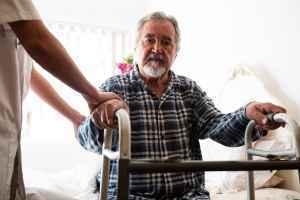
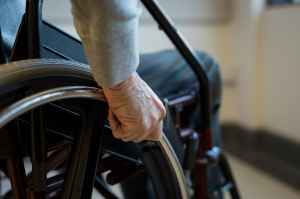

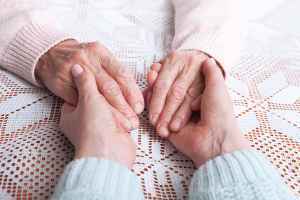
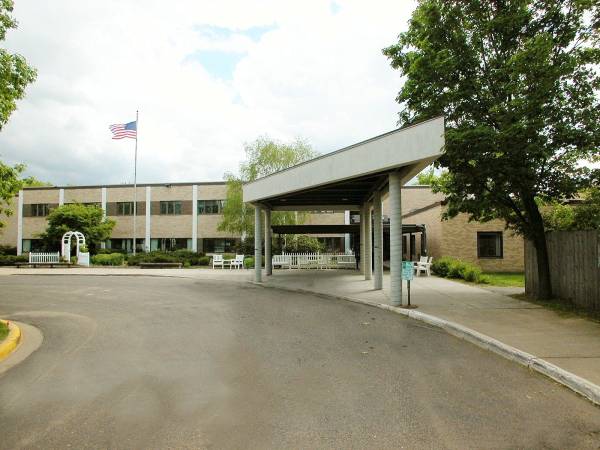





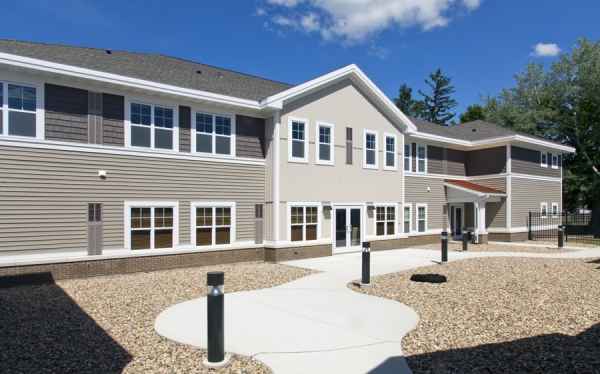




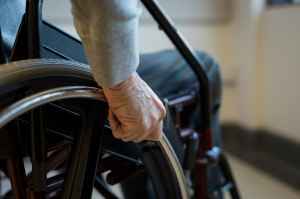

 Your Information is Processing
Your Information is Processing